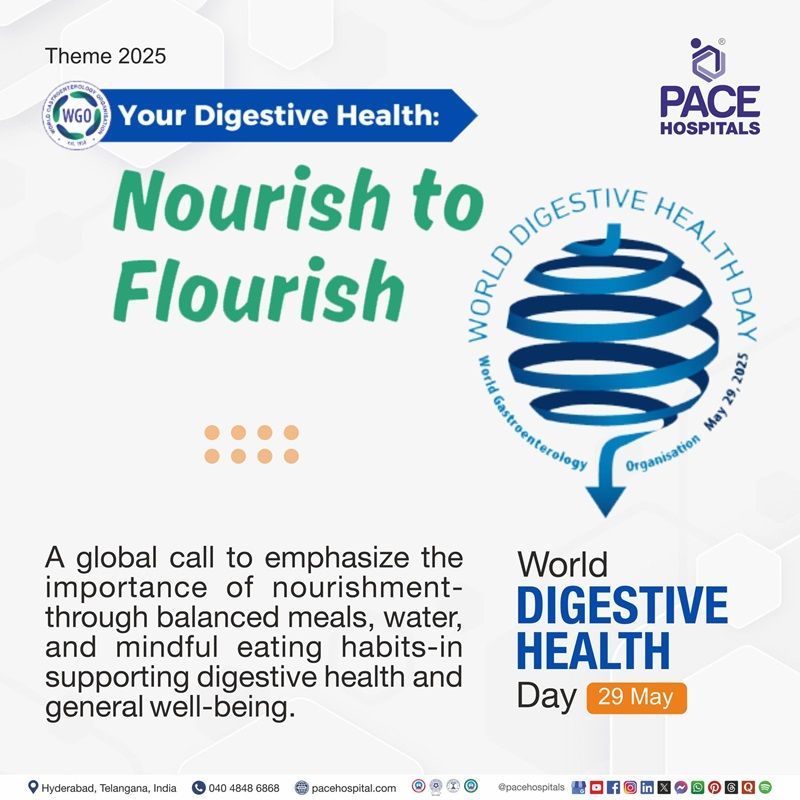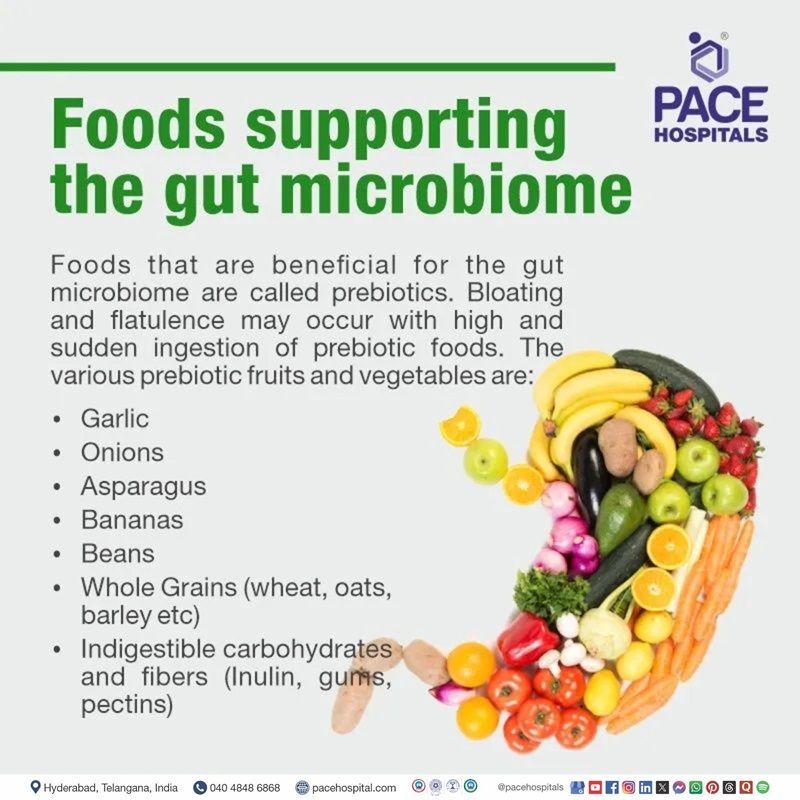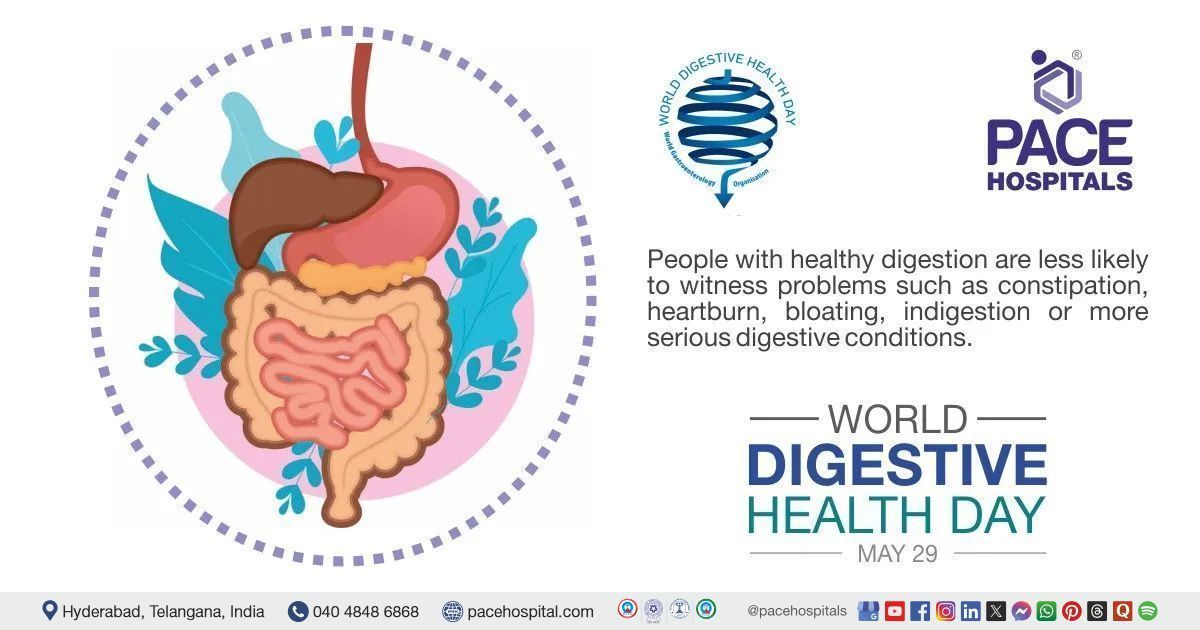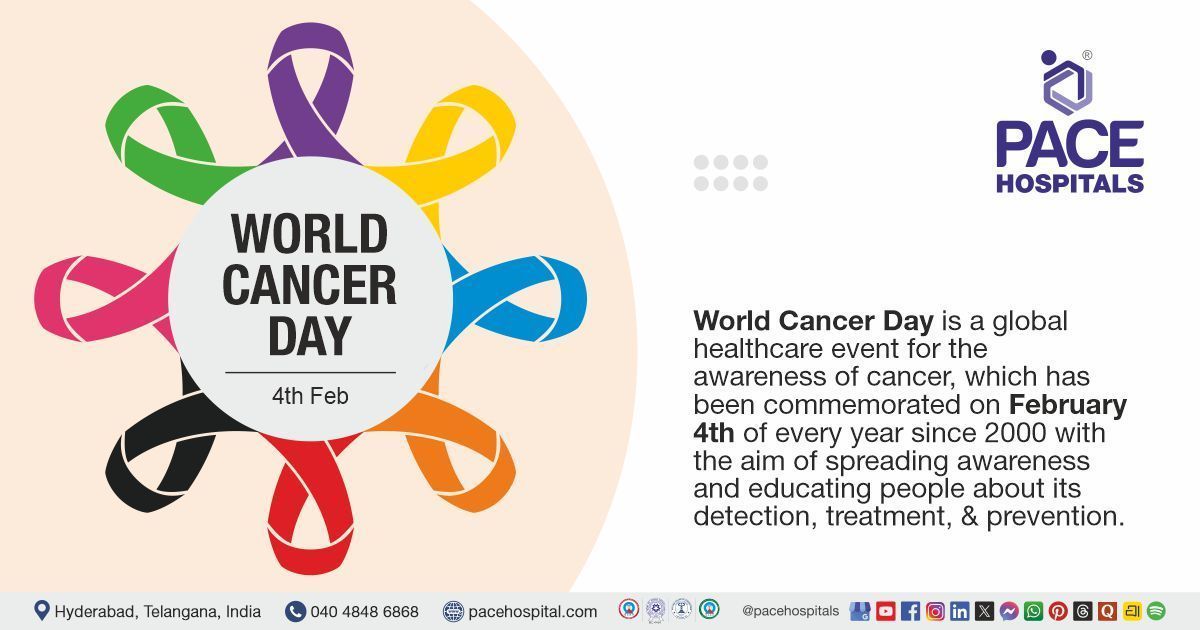World Digestive Health Day - 29 May 2025, Theme and Importance
PACE Hospitals
Good digestive health allows the body to duly break down food and absorb nutrients to keep the body healthy. People with healthy digestion are less likely to witness problems similar as constipation, heartburn, bloating, indigestion or more serious digestive conditions.
Each part of the digestive system plays a part in breaking down food into lower pieces and moving it through the body. The main corridor of the digestive system are the gastrointestinal tract( GI tract), liver, gallbladder and pancreas. The corridor of the GI tract are the mouth, esophagus, stomach, small and large intestine and the anus.
World Digestive Health Day is celebrated on 29th May every year. And it was launched in 2004 to mark the 45th anniversary of the creation of the World Gastroenterology Organisation.

World Digestive Health Day 2025 Theme
This year, 2025, the World Digestive Health Day theme is "Your Digestive Health: Nourish to Flourish”. The World Gastroenterology Organization selected this theme to emphasize the importance of nourishment--through balanced meals, water, and mindful eating habits--in supporting digestive health and general well-being. This year's (2025) campaign focusses on the significance of prioritizing digestive health, supports early identification and preventive care, and invites individuals from all walks of life to engage in discussions and exchange ideas on digestive well-being.
Year by year, the themes for World Digestive Health Day
- World Digestive Health Day theme 2024: Your Digestive Health: Make It a Priority
- World Digestive Health Day theme 2023: Your Digestive Health: A Healthy Gut from the Start
- World Digestive Health Day theme 2022: Colorectal Cancer Prevention
- World Digestive Health Day theme 2021: Obesity: An Ongoing Pandemic
- World Digestive Health Day theme 2020: Gut Microbiome: A Global Perspective
- World Digestive Health Day theme 2019: Early Diagnosis and Treatment of Digestive Cancers
History of World Digestive Health Day (WDHD)
Marking the 45th anniversary of the World Gastroenterology Organization, World Digestive Health Day was launched in 2004. The World Gastroenterology Organization encompasses over 50,000 delegates and over 100 member societies worldwide.
The Gut Microbiome
The microbiome is a collection of microorganisms (bacteria, fungi, parasites, and viruses) that coexist in the gastrointestinal tract, especially in the small and large intestines. The microbiota network is unique, determined by DNA and exposed to microorganisms during birth and through the mother's breast milk. Environmental exposures and diet can alter the microbiome, affecting health.
While most microbes are helpful, some can be harmful, and dysbiosis can occur when there is a disruption in the balance of the microbiome, leading to an increased risk of disease.

Colorectal Cancer Prevalence
Colorectal cancer had a low prevalence several decades ago. Still, it has come to a predominant cancer and now accounts for roughly 10 of cancer-related mortality in western countries.
The ‘ rise’ of colorectal cancer in developed countries can be attributed to the decreasingly geriatric population, unfavorable ultramodern salutary habits and an increase in threat factors similar to smoking, low physical exercise and rotundity.
New treatments for primary and metastatic colorectal cancer have surfaced, furnishing fresh options for cases; these treatments include laparoscopic surgery for primary complaint, more-aggressive resection of metastatic complaint (similar to liver and pulmonary metastases), radiotherapy for rectal cancer and neoadjuvant and palliative chemo therapies. Still, these new treatment options have had limited impact on cure rates and long-term survival.
How to Detect Colorectal Cancer?
Utmost colorectal cancers begin as a polyp, which can be detected during routine screening colonoscopy performed every 10 times starting at age 50.
Other forms of screening include an annual stool fecal immunochemical (FIT) test, virtual CT colonography every 5 years, or Cologuard stool DNA test every 3 years. From the time the first abnormal cells start to grow into cysts, it takes 10 to 15 times for them to develop into colorectal cancer.
Adenomatous polyps have a higher rate of turning into cancer, while hyperplastic and inflammatory polyps are typically not precancerous.
How to prevent colorectal cancer?
- Moderate to heavy alcohol consumption is associated with 1.2 to 1.5-fold increased risks of cancers of the colon and rectum compared with no alcohol consumption.
- High-fat and low-fiber diets - Research showed that levels of F. nucleatum increase if an individual switches from a low-fat, high fiber diet to a high-fat, low-fiber diet can increase risk of colon cancer. Fusobacterium nucleatum (F. nucleatum) – positive indicates colorectal cancer.
- Limit the consumption of high protein diet and red meat
- Sedentary lifestyle - lifestyle involving little or no physical activity. A person living a sedentary lifestyle is often sitting or lying down while engaged in an activity like reading, socializing, watching television, playing video games, reading or using a mobile phone / computer for much of the day.
- Obesity people who are obese are slightly (about 30%) more likely to develop colorectal cancer than normal-weight people. The researcher found that women ages 20 to 49 who were considered overweight or obese based on BMI had up to twice the risk of developing early onset colorectal cancer before age 50, compared with women who reported the lowest BMIs. A higher BMI is associated with increased risks of colon and rectal cancers in both men and in women, but the increases are higher in men than in women.
Share on
Request an appointment
Fill in the appointment form or call us instantly to book a confirmed appointment with our super specialist at 04048486868
Appointment request - health articles
Recent Articles











